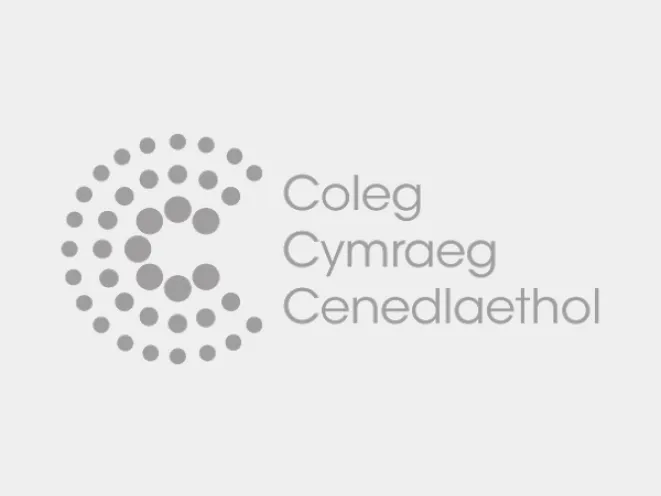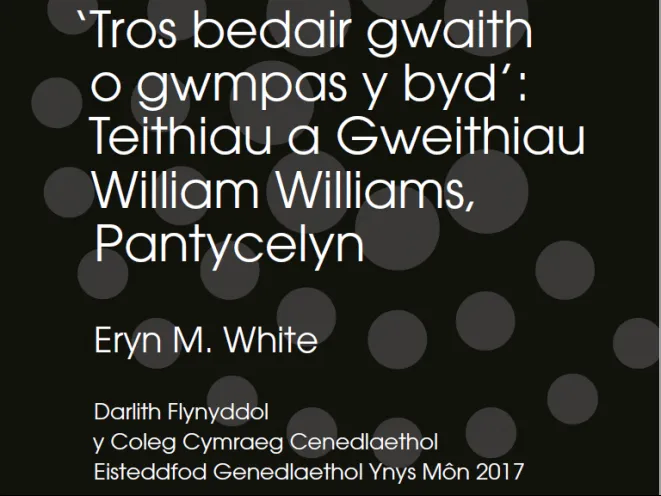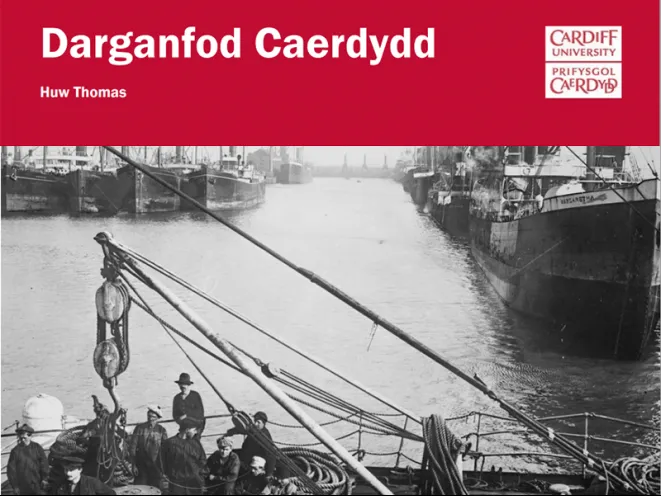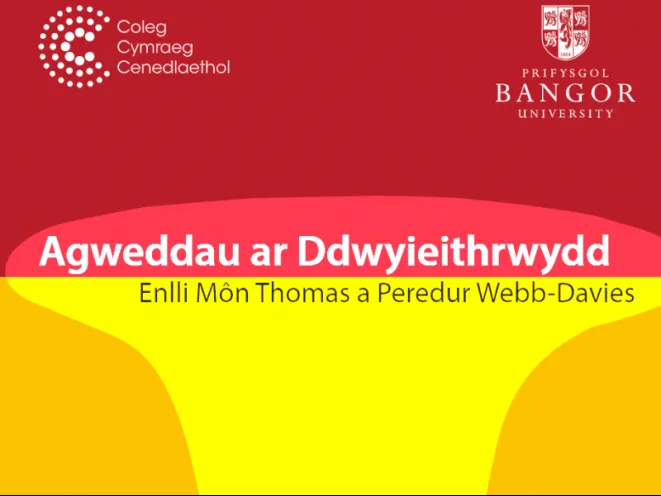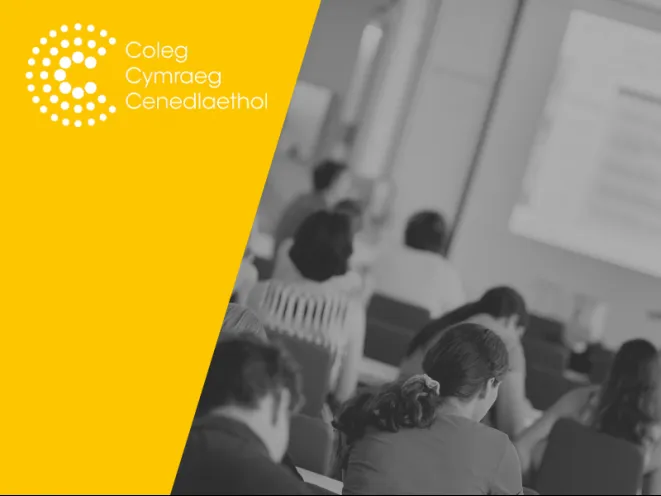Cynhaliwyd cynhadledd Pontydd Cyfieithu ym Mhrifysgol Aberystwyth ar 19 Ionawr 2017. Yma, ceir rhaglen y gynhadledd ynghyd â ffeiliau sain a/neu fideo o bob cyflwyniad neu sesiwn. Cliciwch ar Cyfryngau Cysylltiedig uchod i lawrlwytho'r ffeiliau.
Cynhadledd Pontydd Cyfieithu
‘A new world where justice dwells’: Morgan John Rhys’ (1760–1804) vision
In this article it is argued how Morgan John Rhys’ (1760–1804) belief in the Second Coming and Millennium influenced his participation in the campaign to abolish slavery, the French Revolution and America. It is shown how Millenarianism was a force that shaped Morgan John Rhys’ worldview and influenced his social action and campaigns. Also, it is shown how William Williams, Pantycelyn (1717–91), preceded Morgan John Rhys in this context. My argument, with comparative reference to Williams and Rhys, is that Evangelicalism and the Enlightenment were not intellectual enemies, and that Millenarianism was one of the most important driving forces in the lives of these two men, who were integral to the life of eighteenth century Wales.
The Scrum: Justice and Responsibility
In this article we argue that the current laws of the scrum in Rugby Union inevitably lead to unfairness. The scrum is so biomechanically complex that it is impossible for a referee to reliably determine who deserves punishment when the scrum collapses. Consequently, undeserved penalties are inevitable. Furthermore, the players who are penalised may not be causally or morally responsible for the offence. Under certain pressures, they have no choice but to collapse. Resolving the issue is not an easy matter. There is an inevitable trade-off to be negotiated between fairness on the one hand and tradition, excitement and entertainment on the other.
The effect of Translation Memories on the translation process: Effort and productivity in Welsh translation
Translation into Welsh has now grown into an important industry, and a number of researchers have linked translation to wider efforts in the field of language planning. This article therefore, keeping in mind the importance of translation to language planning in Wales, intends to investigate the effect that Translation Memories have on particular aspects of the process of translating into Welsh, asking whether there is a place for this technology in a professional context. What contribution can this technology make, then, to translation and language planning in Wales?
Darlith Flynyddol 2017: 'Tros bedair gwaith o gwmpas y byd': Teithiau a Gweithiau William Williams, Pantycelyn
Darlith Flynyddol y Coleg Cymraeg Cenedlaethol 2017: 'Tros bedair gwaith o gwmpas y byd': Teithiau a Gweithiau William Williams, Pantycelyn, gan Eryn White, Prifysgol Aberystwyth. Traddodwyd y ddarlith yn Eisteddfod Genedlaethol Môn ar ddydd Mawrth 8 Awst 2017.
Lewis Edwards and the 'trahison des clercs'
This article focuses on three essays published on the work of Samuel Taylor Coleridge and Immanuel Kant by the theologian and scholar, Lewis Edwards, in the Traethodydd between 1846 and 1853. Edwards is considered here as representative of the religious leaders of Wales in the second half of the nineteenth century. His work is examined for evidence of attitudes towards the philosophical developments of the period which could offer an explanation for his failure to defend Welsh language and culture in the face of the spread of English. The article argues that Edwards’ commitment to the speculative reasoning on which contemporary Calvinist theology was based prevented him from responding directly to the intellectual challenge represented by modern thought. In the three articles considered here, which present Kant’s thought as expressed in the first Critique, together with Coleridge’s philosophical theology as it is presented in his Aids to Reflection, we find clear evidence of Edwards’ unwillingness to accept any challenge to Calvinist philosophy. The picture he presents of the work of these two authors is defective and misleading. A major part of both Kant’s Kritik and Coleridge’s Aids is a destructive criticism of the baseless pretensions of speculative reason. Edwards chooses to ignore this entirely, so as to maintain his belief in the power of the human intellect to intuit truth without reference to empirical evidence. It is argued here that this wilful blindness to modern thought was an important factor in motivating the intellectual treason of which Edwards and his contemporaries stand accused. It is also suggested that this treason undermined not only Welsh language and literature, but also the Calvinist religion Edwards was determined to defend. In refusing to face the challenge of modern thought, Edwards left his students with no means of adapting traditional teaching to meet the requirements of a changing sensibility. The eventual result of that was a degree of alienation from the Nonconformist past, the effect of which continues even today
Darganfod Caerdydd – Huw Thomas
Mae'r llyfr hwn yn esbonio cefndir a chyd-destyn yr etifeddiaeth hanesyddol unigryw sydd wedi cynhyrchu'r Gaerdydd sy'n bodoli heddiw. Ffocws y llyfr ydy cynllunio a datblygiadau ffisegol y ddinas, er enghraifft, y trawsnewidiad ym Mae Caerdydd. Bydd y llyfr yn ddefnyddiol fel rhan o fodiwlau ar ddaearyddiaeth trefol ac adfywiad trefol, ac hefyd ar gyfer ymweliadau astudiaethol, lle gall y myfyrwyr dilyn Taith Gerdded Bae Caerdydd.
Agweddau ar Ddwyieithrwydd
E-lyfr newydd gan yr Athro Enlli Môn Thomas a Dr Peredur Webb-Davies o Brifysgol Bangor. Ac ystyried bod mwy o ieithoedd gwahanol nag o wledydd yn y byd, mae'n anochel bod ieithoedd yn dod i gysylltiad â'i gilydd mewn rhyw ffordd ac ar ryw adeg yn ystod eu bodolaeth. O ganlyniad, poblogaeth amlieithog ei naws yw'r rhan helaethaf o boblogaeth y byd. Er nad oes ffigyrau penodol (neu ddull casglu data digon ymarferol) yn nodi'r union ganran neu union nifer y siaradwyr uniaith a dwyieithog a geir, mae meddu ar ddwy neu fwy o ieithoedd yn ddarlun teg o'r 'norm' ieithyddol cyfredol ar gychwyn yr 21ain ganrif. O'r ychydig dros 6,000 o ieithoedd sy'n parhau i fodoli ledled y byd, prin bod unrhyw un wedi'i hynysu rhag pobloedd neu gymdeithasau ieithyddol eraill. Daw pob iaith bron i gysylltiad ag iaith arall, ond nid pawb sydd o'r farn fod hynny'n dda o beth! Bwriad y llyfr hwn yw eich cyflwyno i fyd y siaradwr dwyieithog, ac i herio nifer o fythau ynglÅ·n ag anfanteision - ac, yn wir, manteision - dwyieithrwydd. Y gobaith yw y bydd y darllenydd, o ddarllen y gyfrol hon, yn deall yn well natur ac anghenion unigolion sydd yn meddu ar sgiliau mewn dwy iaith.
‘Memory Contests’, narrative and history in Wehlau’s Heimatmuseum: Negotiating the complicated history and mem...
Between 1945 and 1948, up to twelve million Germans who lived in Eastern Europe were expelled following changes to the country’s borders. Many of these Germans resettled in the Federal Republic of Germany, where they came to be known as ‘expellees’. To commemorate their lost homeland, the expellees opened small museums dedicated to the areas of expulsion. This article explores the ways in which history and memory are portrayed in the museum representing the former East Prussian town of Wehlau. By investigating themes such as the representation of the homeland, the Second World War and the integration of the expellees into West Germany, this article will highlight the similarities, differences and tensions in the expellee and wider German memory culture.
The early response to Williams Pantycelyn by Saunders Lewis
Saunders Lewis’ Williams Pantycelyn (1927) was the most exciting and controversial work of literary criticism to appear in twentieth century Welsh letters. In ten memorable and often brilliant chapters, Lewis analysed the work of the eighteenth century hymnist not according to the usual Protestant norms but in terms of medieval Catholic mysticism on the one hand and the then novel Freudian and Jungian psychology on the other. The book caused a literary and critical storm. Among those who affirmed its counterintuitive nature was the poet T. Gwynn Jones; its thesis was rejected by the philosopher E. Keri Evans while the preacher-poet Moelwyn Hughes found the volume objectionable in the extreme. Such was the power of Lewis’ analysis, however, that for more than a generation it came to embody a new orthodoxy in the scholarly understanding of William Williams. It was not until the 1960s that this orthodoxy began to be overturned. The accompanying essay describes how this process evolved.
Understanding performance deficiencies in printed thick film EL lamps on paper
In order to examine new potential markets for printed electronics, a research study was undertaken to understand the performance of opaque substrate electroluminescent (EL) lamps. Opaque EL lamps are made possible by a PEDOT:PSS top electrode which replaces the ITO used in the conventional lamps. Screen-printed lamps were manufactured on four substrates (one plastic and three paper) and their performance was measured through brightness measurement. Generally, opaque substrate lamps were 50% less bright than a comparable ITO lamp. Further reductions in brightness were observed with the lighter and rougher papers. Additional layers of PEDOT:PSS increased sheet conductivity but reduced lamp brightness due to a reduction in layer transparency. As lamp size increased, the resistive nature of the PEDOT:PSS caused a significant reduction in lamp output, with a brightness of 25% of a comparable ITO lamp with an illuminated area of 5000 mm2. The relatively poor performance of the opaque lamps is derived not only from the reduced conductivity and transparency of the PEDOT:PSS compared to ITO, but is also caused by the topological nature of the phosphor particles which result in some phosphor material lying outside the electric field created between the two electrodes.
Eitha different yndyn nhw...but it works'
Cynhaliwyd cyfres o weithdai ym Mhrifysgol Caerdydd ar 27 Ionawr 2017 i drafod dwyieithrwydd a’r broses greadigol, dan nawdd y Coleg Cymraeg Cenedlaethol a Llenyddiaeth Cymru. Yn ogystal â gweithdy difyr ar yr heriau a’r cyfleoedd y mae dwyieithrwydd yn eu cynnig i awduron, beirniaid, cyhoeddwyr/cynhyrchwyr, a chyfranogwyr eraill i’r broses ysgrifennu, cafwyd cyfweliadau diddorol gydag Ed Thomas a Llwyd Owen, a thrafodaeth ford gron ddadlennol gyda Tony Bianchi, Catrin Dafydd, Alun Saunders a Branwen Davies.

